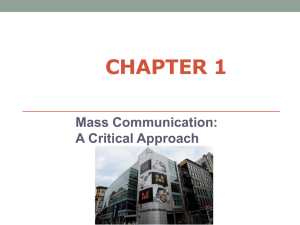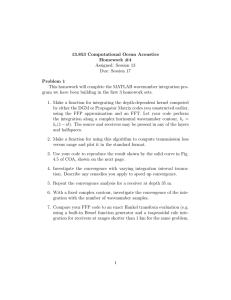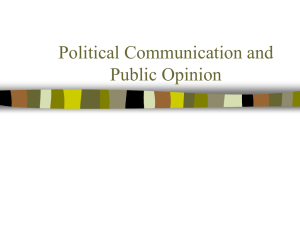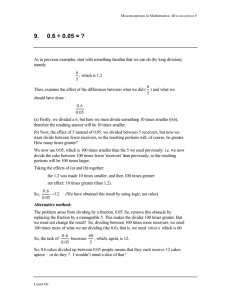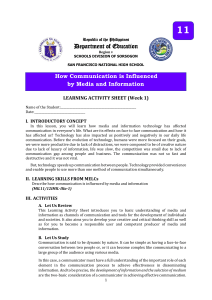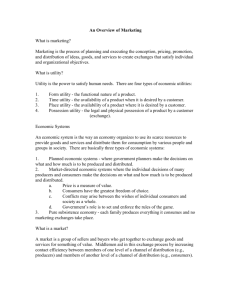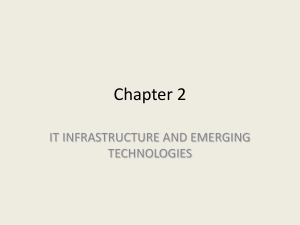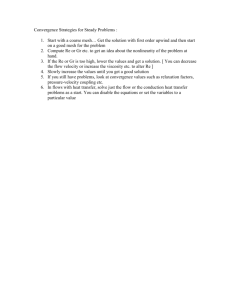Mass Communication a critical approach
advertisement
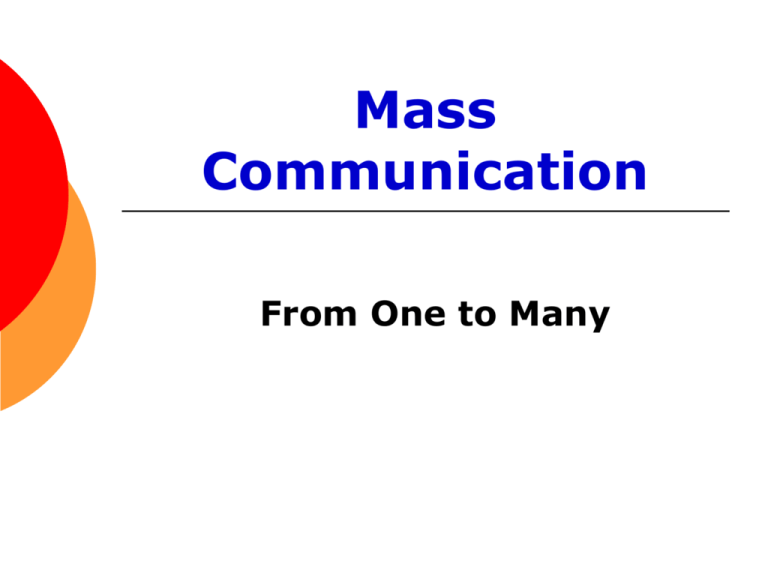
Mass Communication From One to Many Mass Communication Mass media are the cultural industries that produce and distribute: Songs Novels TV shows Newspapers Movies Video games Internet Services Eras in Communication Oral communication Written communication Printed communication Electronic communication Digital communication The Digital Era Digital communication redefined news and social interaction. Bloggers have become an important part of the news industry. E-mail has assumed some of the functions of the postal service. Social media like Twitter and Facebook connect people in a new way. The Linear Model of Mass Communication Senders (authors, producers) Messages (programs, ads) Mass media channel (TV, books) Receivers (viewers, consumers) Gatekeepers (editors, executive producers, media managers) Feedback (messages from receivers back to senders) The Evolution of a New Mass Medium Emergence or novelty stage Entrepreneurial stage Mass medium stage Convergence stage Media Convergence and Cultural Change Changes in how we consume and engage with media culture Watch TV shows on Hulu and Netflix or DVR/On-Demand options Make media choices based on social media recommendations Upload our own media Discuss programs as we watch them through “live-tweeting” Stories: The Foundation of Media Stories we seek and tell are changing in the digital era. Reality TV and social media dominate. Ordinary citizens are able to participate in, and have an effect on, stories told in the media. Media institutions and outlets are in the narrative business. Contemporary Culture Cultural critics are concerned about: The quality of contemporary culture The overwhelming amount of information now available How much the media shape society is still unknown. Figure 1.1: Daily Media Consumption by Platform, 2010 (8- to 18-Year-Olds) Critiquing Media and Culture Media literacy is a critical process that takes us through the steps of: Description Analysis Interpretation Evaluation Engagement Benefits of a Critical Perspective Allows us to participate in a debate about media culture as a force for both democracy and social progress New, blended, and merging cultural phenomena challenge us to reassess and rebuild the standards by which we judge our culture.

